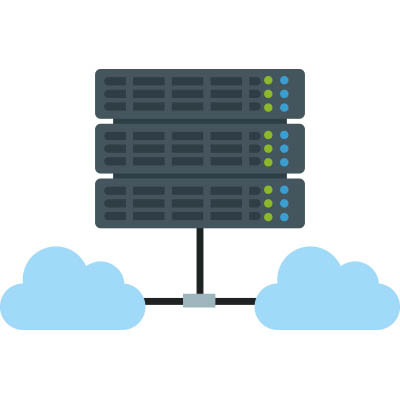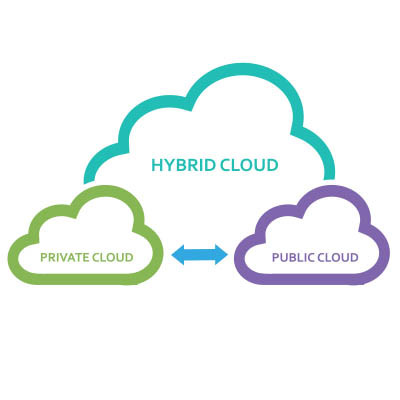Working in IT, our job is to worry so you don’t have to. The things keeping us up at night in 2026 are vastly different from the headaches of five or ten years ago. Thanks to the invisible power of AI-driven automation and mature cloud ecosystems, many of the manual, soul-crushing tasks that used to define IT support have essentially vanished.
Heart of Texas Network Consultants Blog
Today’s business technology is like operating in the wild west. It’s expansive, fast-moving, and if you aren’t careful, it can gallop away from you before you even realize it’s gone. Between SaaS sprawl, underutilized hardware, and hidden maintenance fees, many companies are overspending by 20-to-30 percent on their entire technology stack. That’s a lot of money.
It’s time to saddle up and start earning some savings. Today, we wanted to give you a guide of sorts that can help you round up your expenses and bring your technology budget back under control.
With cloud computing, your business has access to tools that fundamentally change the way work takes place. Several of the biggest reasons to adopt the cloud include flexibility, efficiency, and scalability. How are you planning to use the cloud to add or remove resources to your business initiatives as needed? Today, we want to share how scalability works and how your business can fully leverage it with the cloud.
Data storage can be difficult for SMBs to manage, but the cloud can make it significantly easier (and cheaper). There are real, tangible benefits of using the cloud for your data storage needs. Today, we’ll look at three major reasons why your organization should have cloud storage on its list of tech infrastructure priorities in the coming months.
Whether you’re aware of it or not, you’re likely already utilizing the cloud in at least some capacity. The trick is to find the best way to manage your business’ cloud so that it works for your organization’s specific needs. Today, we want to look at the different types of cloud management policies and why you need to weigh your options to get the most value for your business.
For years, the telephone has been one of the most tried-and-true business communications solutions, and that trend will continue into 2025. If you’re still using the phone solutions of the past, however, you’ve got some upgrading to do. Here’s what you need to know about the best communications investment you can make: Voice over Internet Protocol, or VoIP.
With the price of hardware at risk of skyrocketing, it’s no wonder that many businesses are looking to virtualize as much of their operations as they can. This is where the cloud comes in; you can virtualize just about any solution, including some that you might not have considered in the past. Let’s explore how an SMB might use virtualization and cloud computing to skirt hardware acquisition costs.
File sharing is a big deal. When you try to send your friends a meme or share a video with them and it doesn’t send… that can be extremely frustrating. When it comes to business file sharing, miscommunication can cost quite a bit. Today, we will look at two concepts in small business file sharing and how they help a small business.
Software is an important part of any business’ toolset, and for small businesses, Software as a Service, or SaaS, is the most cost-effective way to take advantage of it. The most profitable companies in the world run on SaaS, and so too can your business. Let’s go over some of the most powerful solutions your organization can implement in the realm of software and how they can benefit your success.
PDF, which stands for Portable Document Format, is a type of file that business professionals are all too familiar with. While most are aware of and appreciative of this file type, they likely are not aware of some of the more fun and useful features afforded to them. Let’s explore just what PDFs are capable of, including how to make and edit them.
Technology can bring a lot of value for businesses, but sometimes it can be difficult to nail down exactly what can make a business run optimally. There are a lot of options, but all that means is that there are a lot of things that can potentially go wrong. Let’s take a look at some of the technology that small businesses are using to support the new workplace and create better opportunities.
Through cloud-based technology, your business can change the way it operates in countless different ways, all of which can benefit you in the long run. If you haven’t yet considered cloud-based solutions for infrastructure, then you could be missing out on some of the greatest innovations of the past decade. Here are some ways your business can start to leverage the cloud to its advantage.
The cloud has turned out to be a complete game changer for the way people compute. For any business, this can offer opportunities that would not be possible without cloud computing. This week, we take a look at the different types of cloud computing with an eye toward how small businesses can gain value from choosing them.
While one of the big selling points of the cloud has always been how cost-effective it can be, it is important to remember that this isn’t always the case. There are situations where the value that a business gets from the cloud isn’t really worth the price of admission. Let’s take a few moments to break down how you can evaluate the value that the cloud can offer you, and how to use this data to your advantage.
Television has come a long way since its inception, and entertainment is more accessible today than it has ever been before. Technology has played a large part in the dissemination of this entertainment, so we thought we’d take a look at how the cloud has contributed to making television the cornerstone of leisure that it is today.
The cloud has helped countless organizations all over the world establish themselves as powerhouses of their industries through dynamic and flexible solutions. One of the biggest reasons why the cloud is so effective—particularly for growing companies—is because of how scalable it is. Let’s examine how this scalability can help your company succeed despite how much it grows.






















